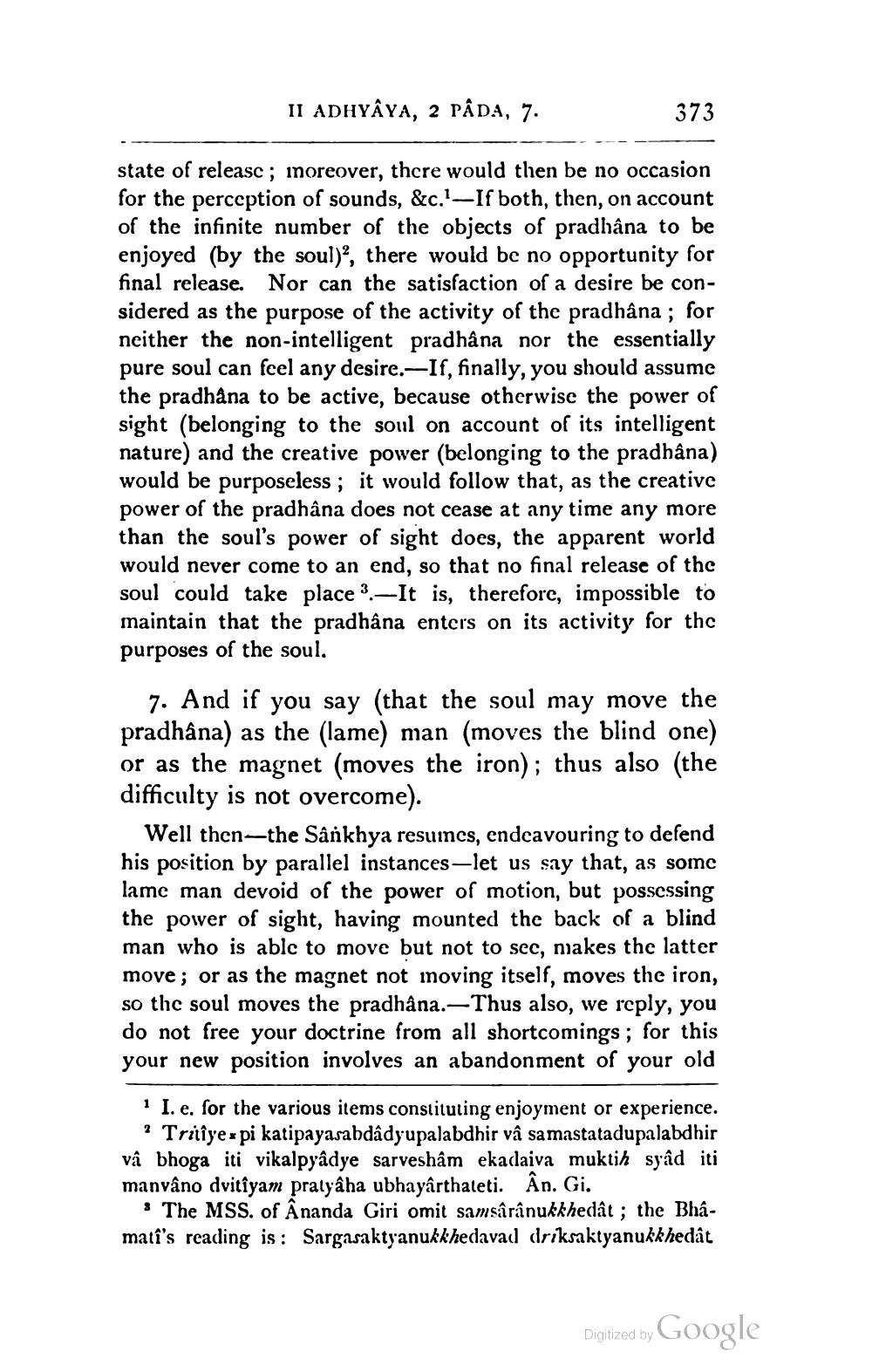________________
II ADHYAYA, 2 PÂDA, 7.
373
-
-
-
-
--
-
-
-
state of releasc; inoreover, there would then be no occasion for the perception of sounds, &c. - If both, then, on account of the infinite number of the objects of pradhâna to be enjoyed (by the soul)?, there would be no opportunity for final release. Nor can the satisfaction of a desire be considered as the purpose of the activity of the pradhâna; for neither the non-intelligent pradhâna nor the essentially pure soul can feel any desire.--If, finally, you should assume the pradhana to be active, because otherwise the power of sight (belonging to the soul on account of its intelligent nature) and the creative power (belonging to the pradhâna) would be purposeless; it would follow that, as the creative power of the pradhâna does not cease at any time any more than the soul's power of sight does, the apparent world would never come to an end, so that no final release of the soul could take place 3.-It is, therefore, impossible to maintain that the pradhana enters on its activity for the purposes of the soul.
7. And if you say (that the soul may move the pradhâna) as the (lame) man (moves the blind one) or as the magnet (moves the iron); thus also (the difficulty is not overcome).
Well then-the Sânkhya resuincs, endeavouring to defend his position by parallel instances — let us say that, as some lame man devoid of the power of motion, but possessing the power of sight, having mounted the back of a blind man who is ablc to move but not to sec, makes the latter move; or as the magnet not inoving itself, moves the iron, so the soul moves the pradhana.-Thus also, we reply, you do not free your doctrine from all shortcomings; for this your new position involves an abandonment of your old
1 I. e. for the various items constituting enjoyment or experience.
? Triiîye pi katipayasabdadyupalabdhir va samastatadupalabdhir vâ bhoga iti vikalpyâdye sarveshâm ekadaiva muktih syâd iti manvano dvitîyam pratyâha ubhayârthaleti. An. Gi.
3 The MSS. of Ananda Giri omit samsârânukkhedât ; the Bhamati's reading is : Sargasaktyanukkhedavad driksaktyanukkhedât
Digitized by Google




